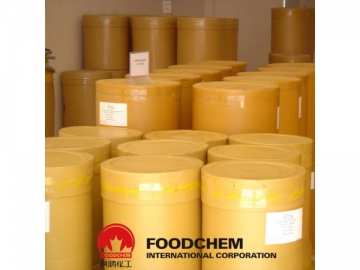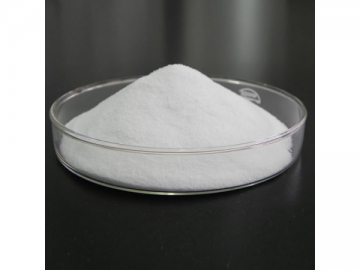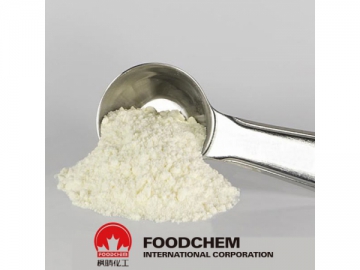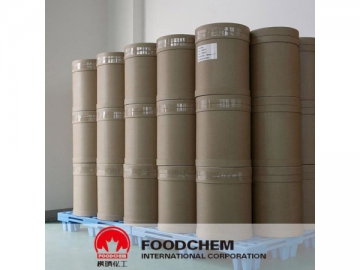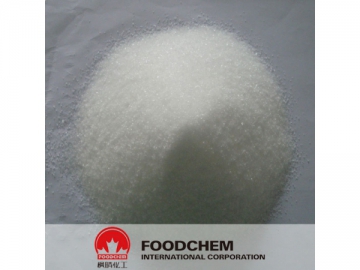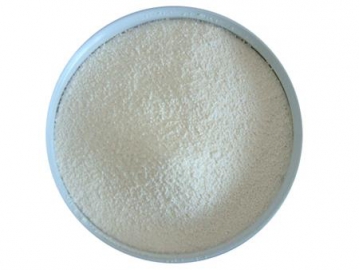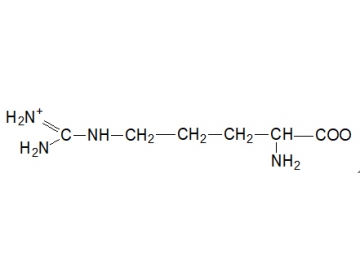L-Glutamine Alpha-Ketoglutarate
L-glutamine alpha-ketoglutarate (GKG), provides the non-essential amino acid, L-glutamine, along with alpha-ketoglutaric acid, a component of the Citric Acid Cycle.
Conclusion: The Goods Conform to FCCVI standards.
Packaging: 25 KG/DRUM
Storage: Keep in a cool, dry environment
Shelf life: 24 Months
| ITEM | Items | Standards |
| Appearance | White crystals or crystalline powder | |
| Idenfification | Positive | |
| Specific Rotation(°) | 6.3 - 7.3 | |
| Assay(%) | 98.5 | |
| Loss on drying(%) | 1.0 Max | |
| Residue on ignition(%) | 0.5 Max | |
| Heavy Metals(ppm) | 10.0 Max | |
| As(ppm) | 1.0 Max | |
| Pb(ppm) | 3.0 Max |
L-glutamine is a non-essential amino acid that is a large component protein in skeletal muscle tissue. L-glutamine is also found in high concentrations in the brain, intestinal lining, lungs, heart, kidney and liver.
L-glutamine can be a source of cellular energy, along with glucose. Because of this, L-glutamine is often used in work-out supplement programs. L-glutamine also supports hepatic and renal systems, as well as muscles, in being a component of protein synthesis.
Alpha-ketoglutarate (α-Ketoglutarate or AKG) is a keto acid produced by de-amination of the amino acid, glutamate, and is a metabolic intermediate in the Citric Acid Cycle. Alpha-ketoglutarate is an important nitrogen transporter in biochemical pathways. The amino groups of amino acids are attached to alpha-ketoglutarate via transamination reactions, where it is then carried to the liver where the urea cycle takes place.
In this way, the combination of L-glutamine and alpha-ketoglutarate help support healthy nitrogen metabolism and energy production.

